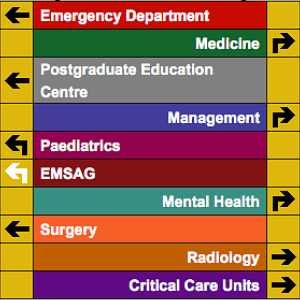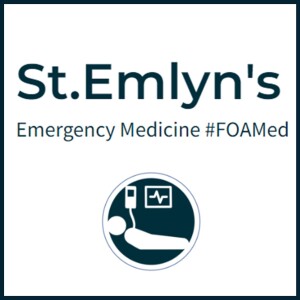
Hello and welcome to the St Emlyn's Podcast and blog. I'm Simon Carley, and I'll be guiding you through the exciting topics and developments we've covered on the blog in November 2018. From leadership insights to groundbreaking medical research, this month has been incredibly informative. Let's dive into the highlights!
Leadership Insights from the FIX ConferenceWe begin our review in New York, where Natalie May attended the FIX (FeminEM) Conference. In her second post about this event, Natalie explores profound themes, particularly around leadership and motivation in the medical field.
Key Takeaways on Leadership and MotivationJennifer Walthall's talk emphasized the importance of acting within the system to drive change. When joining an organization that may not align with your values, you can either work within the system to improve it or fight from the outside. Walthall advocates for influencing change from within, suggesting that once embedded, you can effectively drive improvements.
Lara Goldstein's session on leadership identified four critical attributes of a good leader:
- Listening: Truly understanding your team.
- Recognizing the Impact of Small Actions: Little things add up.
- Conflict Management: Not everyone will like you, and that's okay.
- Gratitude, Kindness, and Decency: Core values that should guide every leader.
Natalie's detailed reflections on the FIX Conference are a must-read for those interested in these themes. Attending FIX in 2019 should be on your list if possible!
POLAR Trial: New Insights into Hypothermia Post-Brain InjuryDan Horner analyzed the POLAR trial in one of our journal club posts. The POLAR trial is a significant randomized control trial investigating the effects of hypothermia in the early stages after a brain injury. This study follows the Eurotherm trial, which explored hypothermia's role in patients with severe brain injuries in the ICU.
What the POLAR Trial RevealsThe POLAR trial involved 511 patients with severe brain injuries, randomized to either hypothermia (cooling to 33-35°C) or maintaining normothermia for 72 hours. Despite strong pathophysiological evidence supporting hypothermia, the trial found no significant difference in outcomes after six months. Initial results suggest that routine hypothermia for early-stage brain injury might not be beneficial, but long-term data follow-up is crucial. This trial, published in JAMA, is essential reading for anyone involved in emergency medicine or critical care.
The Case for Whole Blood Transfusion in Trauma: Insights from Zaf QasimZaf Qasim, a former Manchester trainee now making waves in the US, contributed an enlightening post on the use of whole blood in trauma resuscitation. This approach, which makes intuitive sense—replacing lost whole blood with whole blood—contrasts with the UK practice of separating blood into components for transfusion.
Advantages of Whole Blood TransfusionZaf argues that whole blood could simplify and improve trauma care, reducing the time and complexity of reconstituting blood components in the body. Although not yet standard in the UK, this method is gaining traction in places like London HEMS and various European centers. As data continues to emerge, this could revolutionize trauma care, harkening back to practices from the Second World War and Vietnam.
Challenging the Use of "Sexy" in Clinical MedicineNatalie May returns with a provocative post challenging the use of the term "sexy" in clinical medicine, especially in resuscitation-related specialties. Often used to describe procedures or equipment, this term can inadvertently perpetuate gender biases and undermine professionalism.
Redefining Professional LanguageNatalie, supported by her husband Oli May's humorous yet insightful critique, urges us to reconsider such language. The term "sexy" in a medical context is not a compliment and can contribute to a culture that sexualizes women in the workplace. This reflection is especially relevant for departments striving to maintain professionalism and inclusivity.
Understanding Cognitive Load Theory with Nick SmithIn the realm of medical education, Nick Smith's debut blog post introduces us to cognitive load theory. As a clinical educator in Manchester, Nick explores how intrinsic, extrinsic, and germane cognitive loads affect learning and teaching.
Applying Cognitive Load Theory in Medical EducationNick's post is a valuable resource for educators aiming to optimize their teaching strategies. By understanding and managing cognitive load, we can create more effective and supportive learning environments for our trainees. This post is part of a broader series on educational theories that are crucial for medical educators.
Elective Experience in South Africa: Lessons from Claire BromleyMedical student Claire Bromley shares her transformative elective experience at Mitchell's Plain with the BAD EM team. Working with leaders like Katya Evans and Craig Wylie, Claire's reflections offer deep insights into the challenges and rewards of emergency medicine in South Africa.
Bridging UK Training with South African RealitiesClaire highlights the stark differences between UK and South African healthcare systems, particularly the intense workload and resource constraints in the public sector. Her experience underscores the importance of preparation, respect, and adaptability for anyone considering working in a different health economy.
Promoting Diversity in the Emergency DepartmentNatalie May's final post for November reflects on promoting diversity and inclusivity in the emergency department. She emphasizes that the ED is unique in its diversity, seeing patients from all walks of life.
Embracing and Understanding DiversityNatalie advocates for a broader understanding of diversity beyond ethnicity, including gender, disability, and sexual orientation. Her insights are essential for ED professionals committed to providing equitable care and fostering an inclusive environment.
Learning in the Social Age: Embracing MedutainmentI had the pleasure of discussing "Learning in the Social Age" at the Emerge 10 conference in Scotland. This presentation, supported by a blog post, explores how the internet and social media are transforming medical education.
The Impact of MedutainmentWe are now competing on a global scale as educators, with learners accessing information from various sources worldwide. This shift necessitates embracing new methods of engagement, ensuring our teaching remains relevant and impactful.
Beyond ALS: Innovations in Cardiac Arrest ManagementWe wrapped up November with a highlight from St Emlyn's Live, featuring Salim Rezaie from the RebelEM blog and podcast. Salim's presentation on "Beyond ALS" challenges us to rethink cardiac arrest management, focusing on advanced techniques and evidence-based practices.
Advancing Cardiac Arrest ProtocolsSalim's talk covers crucial aspects such as minimizing shock pauses, effective adrenaline administration, and optimizing IV/IO access. For anyone serious about improving their ALS skills, this blog, podcast, and accompanying videos are indispensable resources.
Looking AheadNovember was a whirlwind of activity and learning at St Emlyn's, and we have plenty more in store for December. As we approach the holiday season, we hope you find time to explore these posts and integrate their lessons into your practice. Thank you for being part of the St Emlyn's community, and we look forward to continuing this journey of learning and improvement together.
More Episodes
Create your
podcast in
minutes
- Full-featured podcast site
- Unlimited storage and bandwidth
- Comprehensive podcast stats
- Distribute to Apple Podcasts, Spotify, and more
- Make money with your podcast
It is Free
- Privacy Policy
- Cookie Policy
- Terms of Use
- Consent Preferences
- Copyright © 2015-2024 Podbean.com






